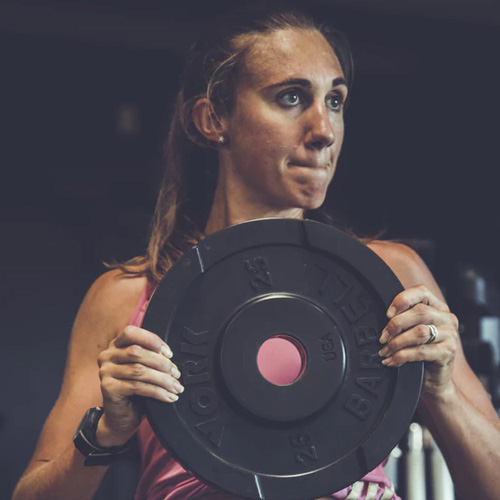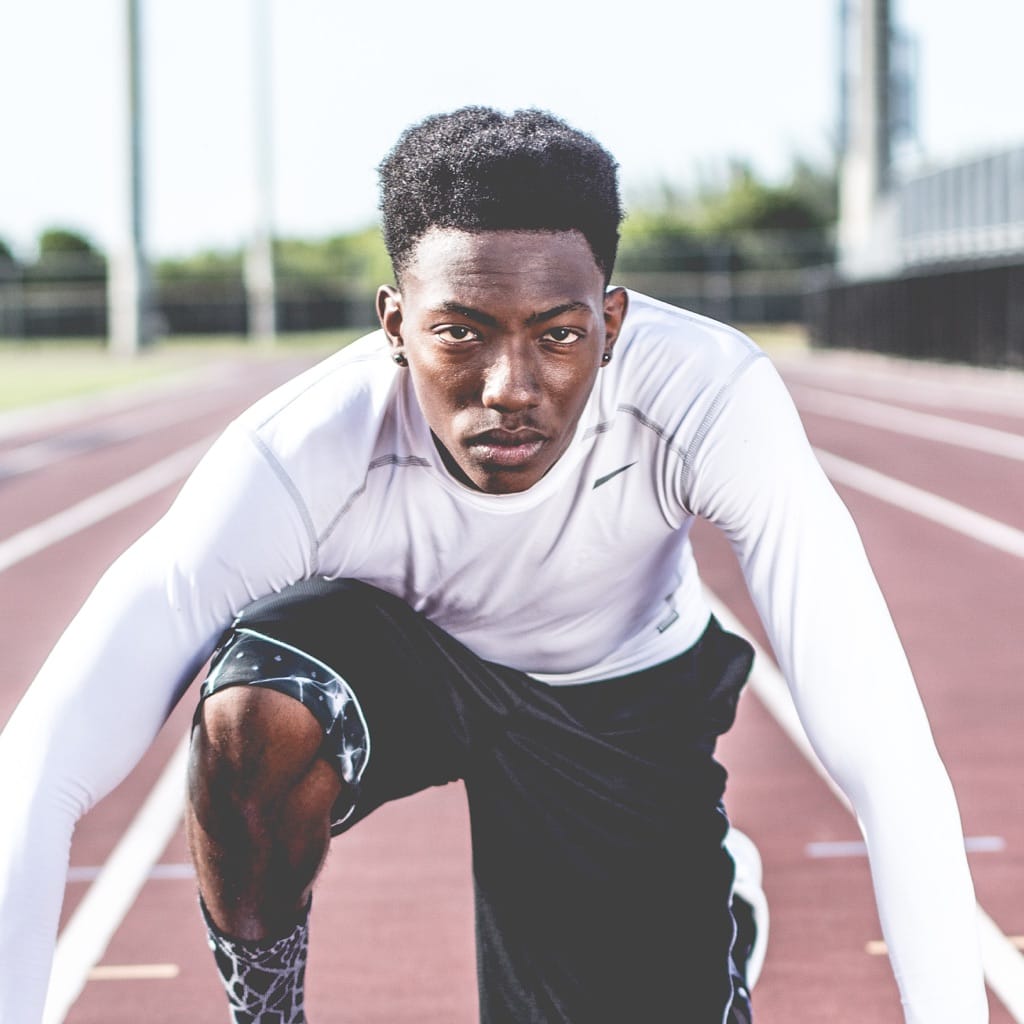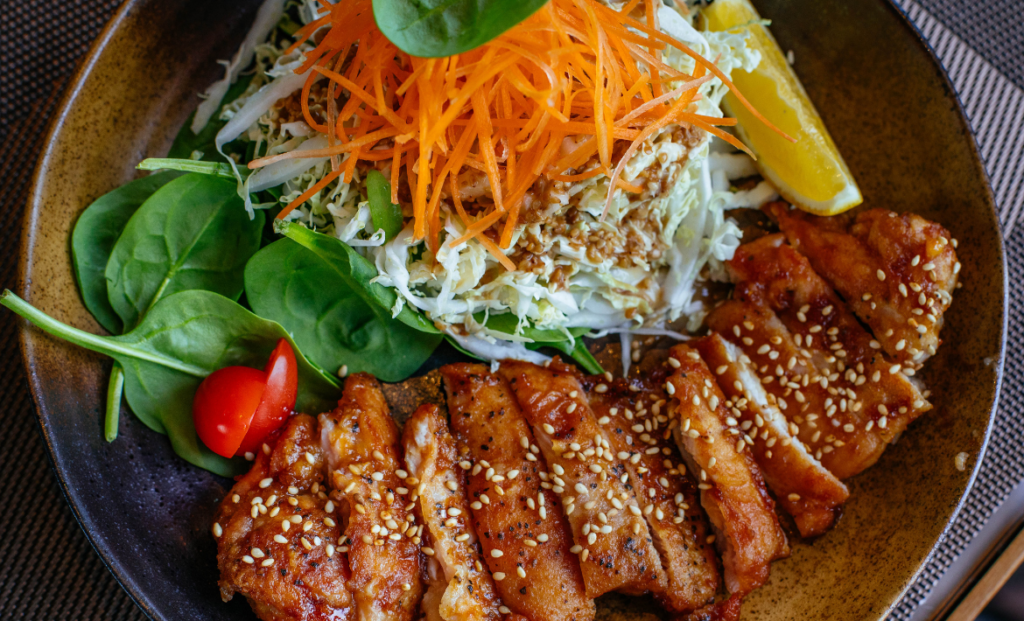
It’s very important to follow some simple sports nutrition advice for any level of exercise – amateur or competitive – as it will help you stay healthy, concentrated and avoid injuries. Following these directions will give you the opportunity to perform the best you can at every gym session, event or training camp you may participate in. A balanced diet will provide you with all the required nutrients, vitamins, minerals, antioxidants and fibres that your body needs to function well.
1. Top up your glycogen storages before training.
The pre-workout meals should be high in carbohydrates, moderate in protein and low in fat. Topping up with carbohydrates will help you maintain your blood glucose levels while replacing the glycogen levels during exercise(1). Depending on the level and intensity of exercise, the carbohydrate amounts vary between 6 to 10 g / kg or 2.7 – 4.5 g / lb body weight per day. You can see below my top three meal recommendations:
– Wholemeal bagel with avocado, salad and 2 breast chicken slices.
– 2 slices of rye bread with nut butter + 1 banana.
– 2 Weetabix with water or orange juice or unsweetened almond milk and berries + nuts.

2. Are you sure you take the right amount of protein?
There are lots of people who get confused about the amount of protein they should consume daily. A sedentary person or beginner should have 0.8 – 1g of protein per body kg and for a person who exercises (either endurance or strength training) the amounts vary from 1.2 to 1.7 g per body kg per day. The amounts for adolescent competitive male athletes or very active individuals can reach up to 2 g per body kg, while for female ones is up to 1.7 g per body kg. The protein will help the body recover more quickly, replace the damaged muscle fibres and avoid stiffness. These amounts might not be that easy to meet for a vegetarian or vegan athlete and, in this case, it’s good to try some extra plant proteins such as lentils, chickpeas, falafel, seeds, nuts, soya, rice, hemp or peas. The best way is to calculate the amount you consume or need, depending on the activity you do, by keeping a food diary or using an app. Otherwise, you should get advice from a registered nutritionist.

3. How much fat intake is good when you exercise?
You always need to think that fat is a source of energy and it will provide you with the essential fatty acids plus vitamins A, D and E that the body needs to regulate properly. The right amounts to take can vary between 20% to 35% of the daily caloric intake. For example, for a person whose caloric intake is 2000 calories per day, 400 to 700 calories should come from a fat source. High fat diets or very low-fat diets are not recommended for competitive athletes or people who follow a heavy exercise regime. Examples of good – healthy fats are fish – high in omega 3s, avocados, virgin olive oil, seeds, nuts and nut butters.
4. Stay well hydrated.
Hydration is a main issue that lots of people forget about during the day. Especially, for people who exercise on a daily basis and participate in competitions or fitness events, it’s very important to be well hydrated before, during and after their training or race. The right way to calculate the necessary amounts is to drink about 450 – 675ml for every pound or half a kg that lost during training(1). Making yourselves dehydrated either because you forget to drink or due to dieting, will affect your performance, will possibly get you injured, may provoke bad headaches and make you feel tired faster.

5. Try caffeine for endurance sports and beetroot juice for sprint sports to improve performance.
Caffeine is one of the ingredients that has really strong research (1, 2, 3) about enhancing performance. The recommended amounts vary from 1 to 3 mg/kg of body weight and it’s best to be taken either before or during race/event when the athlete feels tired. Best thing is to try caffeine gels or drinks during training so that the athlete can find when the best time is for him / her to consume them.
500 ml of beetroot juice may help improve the time in which the body gets fatigued (4), so sprint athletes or the ones who have two or three different races/events throughout the day might benefit from beetroot juice. It’s very important to try this during training as well, so the athlete can check how his / her body will react.
Find, below, some more examples regarding what and when to eat before / during and after competition or a training camp.
Eating Before Training (1 – 3 hours before) (2,5).
– Whole grain bagel with 1 slice of chicken + 1 slice of cheese + green salad + 1 apple.
– 1 bowl of pasta with chicken or tuna + fresh tomato sauce.
– 1 bowl of rice with turkey mince and peas.
– 1 baguette with 1 slice smoked salmon and 1 slice of cheese + green salad.
– 2 – 3 pancakes (preferably with whole-wheat flour) + 1 – 2 teaspoons honey + 1 tablespoon raspberries on the top.
– 2 bananas.
Eating During Training (about 50 g of carbohydrate per portion).
– 1 – 1.5 sports energy bar or granola bars.
– 2 slices of whole-wheat bread with honey and half a banana on each of them.
– 80 g (= 2 – 3 small square pieces) of dark chocolate bar.
– 1 – 1.5 handful of dried apricots with 10 almonds and 10 walnuts.
– 1 isotonic sports drink.
Eating After Training (meals high in protein – at least 10 g of protein)
– 500 ml milk semi-skimmed or chocolate milk.
– 2 slices of whole meal bread with cottage cheese spread and sunflowers sprinkle on the top.
– 1 omelette with 3 eggs, avocado, peas, asparagus, spinach and carrots.
– 1 protein yogurt (20 g protein), if plain you can add a teaspoon of honey.
– 1 jacket potato with turkey mince and grated low fat cheese on the top.
References
1. American Dietetic Association, Dietitians of Canada and the American College of Sports Medicine (2009). Nutrition and athletic performance. Med and Sci in Sports and Exer, 41 (3),709 – 731.
2. Burke, L. (2007). Practical Sports Nutrition. United States of America, USA: Human Kinetis.
3. Da Silva, V. L, Messias, F. R., Zanchi, N. E., Gerlinger-Romero, F., Duncan, M. J. and Guimaraes-Ferreira, L. (2015). Effects of acute caffeine ingestion on resistance training performance and perceptual responses during repeated sets to failure. J Sports Med Phys Fitness, 55 (5), 383 – 389.
4. Ormsbee, M., Lox, J. and JArciero, P. (2013). Beetroot and exercise performance. Nutrition and Dietary Supplements, (5), 27 – 35.
5. Hark, L. and Deen, D. (2005). Nutrition for life. The definitive guide to eating well for good health. United Kingdom: Dorling Kindersley.



